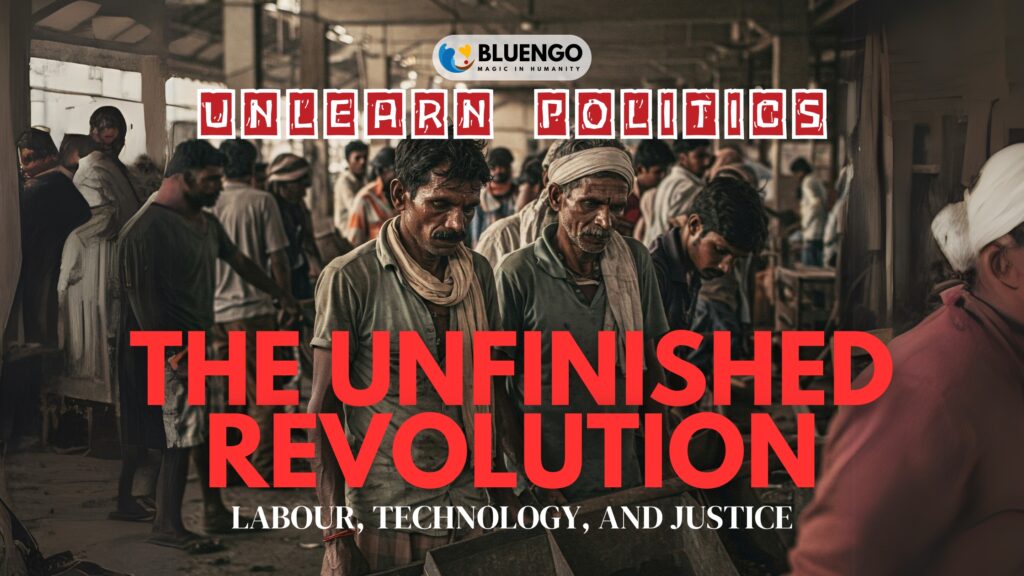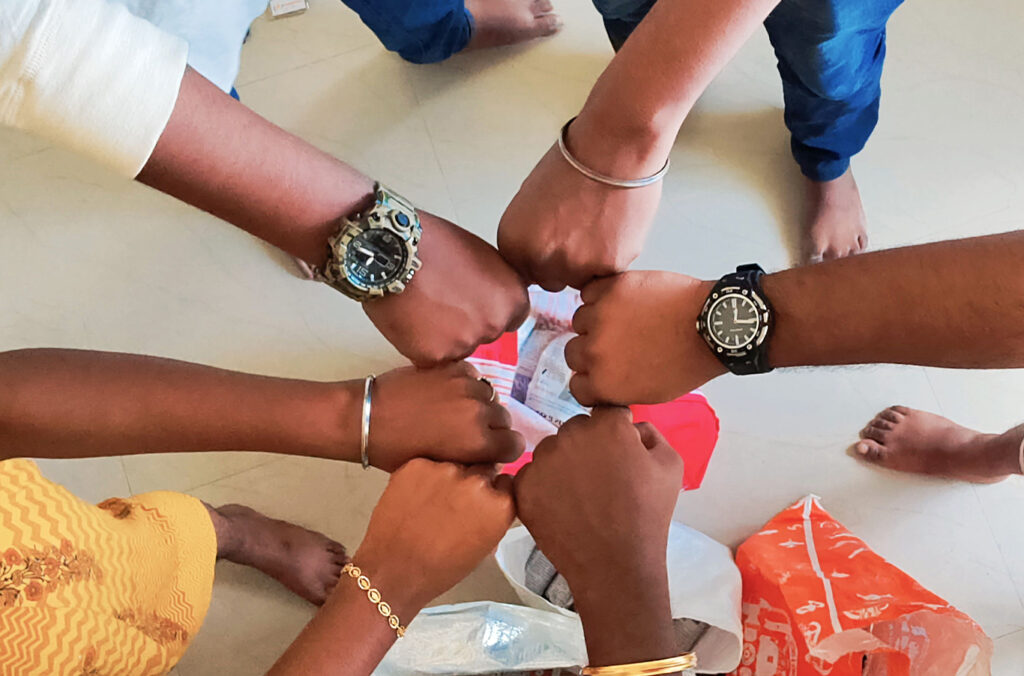The Unfinished Revolution: Labour, Technology, and Justice
By Zeeshan & Sharukh S
📑 Index
1. Sanitation is Not a Caste Duty: Manual Scavenging in the 21st Century
Author: Zeeshan

A man picking trash with his bare hands. Loading it into the truck. A woman rag picking. Carrying a huge gunny bag. Workers getting into manholes without any gear, cleaners in open sewers with their shovels, trash collectors with their bins. These are the scenes your likely to encounter if you live in India. Yet most of us are blind to it. They go unnoticed. Their untimely deaths nothing but a statistic.
Despite a ban on Manual Scavenging by the Government in 1993, Every civic entity in India employs them.
Who are they? Where do they come from? What forces reduce them to such work?
They are Dalits. A historically oppressed group deemed untouchable by the self designated Savarnas, who consider it the duty (dharma) of Dalits to work as manual scavengers and sanitation workers. Relying on their dehumanizing work to maintain their idea of casteist purity while subjecting them to ostracization, discrimination, depriving them from access to water, health, education, rights, opportunities, robbing them of a dignified and secure life. All to stay at the top of their caste hegemony.
Due to the accident of their birth, Dalits face indescribable atrocities from inhumane, hazardous working conditions to brutal violence for merely asserting their rights.
Our Prime Minister launched the Swachh Bharat Mission to much grandeur and publicity, the indelible image of him sweeping etched on our collective memories. Despite the goal of improving Waste Management systems of the country, the mission did absolutely nothing about the perils faced by its workers.
The National Commission for Safai Karamcharis a toothless organization appointed by the Government for the improvement of Sanitation Workers reports 1266 deaths of Sanitation Workers. A statistic widely considered to be under reported.
The government has done not even the bare minimum to improve the conditions of these workers. And whatever has been done can only be called Policy Tokenism.
As the media and Government turn them a blind eye. The evidence manifests itself as to how the State and its Pillars are controlled by the powerful minority of Savarnas, who have it in their interest to maintain this hegemony.
We as a country, as a society are a broken and divided one. The next gen same as yesterday’s in their submission to these oppressive systems.
I honestly have no solution for this problem. This devil is the original sin of this land. No other society comes any close to propagating and maintaining such a rigid hierarchy of caste purity. I have no hope for this country. All I have is disappointment.
If the work of the oppressed builds the country, why is their suffering invisible? This Labour Day, we must say it clearly: dignity of labour means ending caste apartheid.
2. Democratising the Digital Space: Why Capitalists Hate Torrent
Author: Sharukh S

Before we dive into why torrents have become such a powerful force and why they’re feared by capitalists. Let’s first understand what a torrent actually is.
Imagine a world where, instead of buying a movie from a single store or subscribing to a streaming service, you gather small pieces of it from thousands of people who already have it. Each person shares a tiny part, and when all those pieces come together, you have the complete movie on your computer. This is the essence of torrenting, a decentralized system where people around the world help each other by sharing files directly, bypassing the need for corporate middlemen or official platforms.
It’s like a community where everyone brings a few bricks, and together, they build a house. No one person owns the house, but together, they make it possible. Torrents are, at their core, a collective effort, a digital collaboration that empowers individuals rather than big corporations.
And this is exactly why capitalism has a problem with torrents. because, instead of a few powerful entities controlling the flow of information, the people control it. In a capitalist world, where profit and ownership dictate access to knowledge and culture, torrents represent a direct challenge to the status quo.
Now, consider a poor family who wants to watch a movie but can’t afford to go to a theater, buy a digital copy, or subscribe to a streaming service. Or think about a college student who needs access to expensive software for their studies, but has no money for it.
In this world, only a select few those who can afford it have access to art, culture, and essential tools. So, we must ask, is it ethical to hoard access to these things and make them available only to those who can pay? Is it fair that the ability to enjoy culture, learn, and grow is reserved for the wealthy few?
Torrents force us to confront these uncomfortable questions. Should access to culture, art, and education be determined by one’s ability to pay? On one hand, torrents offer a chance for everyone, regardless of their financial situation, to enjoy movies, music, software, and more. It’s a world where the value of culture and knowledge isn’t locked behind paywalls or subscription fees.
Think about it, those who can afford a movie ticket or a streaming subscription will still go to the theater or enjoy their content on a premium platform. They won’t miss out on an experience because of a torrent. But for the rest of society, torrents provide an opportunity to experience art and culture that would otherwise be out of reach. This raises a profound ethical question, is it fair that only those with money can access the things that shape our world, the films, books, music, and software that reflect our shared humanity?
If money is the sole factor that determines who gets to experience culture and knowledge, we must ask ourselves, how can society progress in such an unequal world? Knowledge and culture are not luxuries. They are the very tools that foster creativity, innovation, and empathy. In the current capitalist model, access to these tools is commodified, creating a divide between the haves and the have-nots.
But torrents offer a different vision, a vision where access is democratized, where progress is not locked behind a paywall, and where the collective effort of many empowers the individual. Only in a world where culture and knowledge are free to all, we may find that the true potential of human creativity and collaboration is unlocked, not just for the privileged few, but for everyone.
3. Is Clean Energy Really Clean? The Hidden Cost of Lithium Mining
Author: Sharukh S
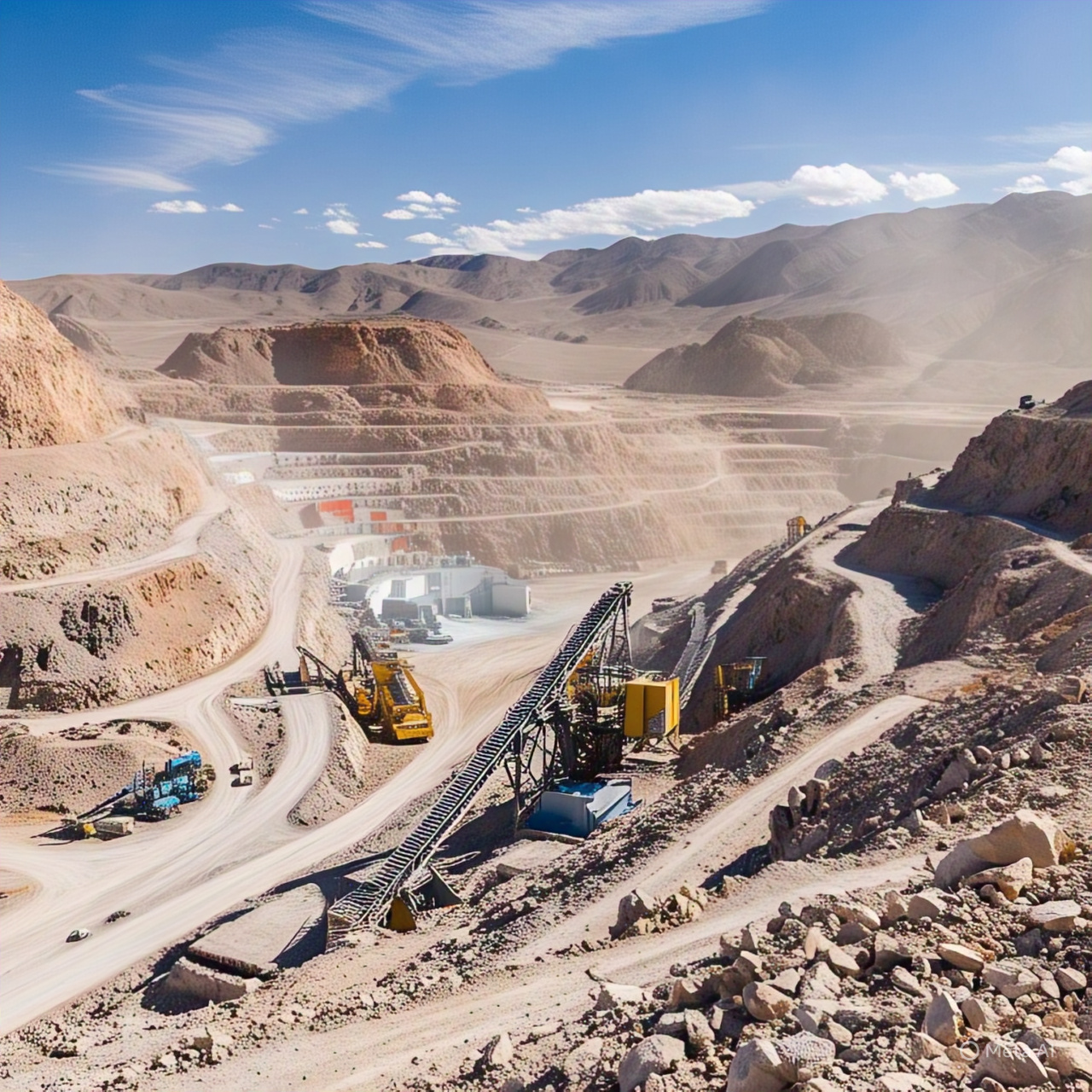
For decades, fossil fuels powered our world and poisoned it. From smog choked cities to oil slicked oceans, the cost has been climate change, illness, and displacement. Everyone agreed: we needed something cleaner.
So when electric vehicles (EVs) arrived, they were hailed as saviors. No emissions, no fuel, just quiet motors powered by progress. In 2025, EVs make up 8% of vehicles globally, even more in cities like Goa. But at the heart of this “clean” energy lies something far more complicated: lithium.
The Demand for Lithium: The New Oil
Lithium powers everything EVs, smartphones, laptops, even renewable energy grids. It’s been dubbed the “white gold” of our time. As fossil fuels decline, lithium is the new oil and a new global race is on.
Environmental Devastation: Not So Green
Extracting lithium consumes massive amounts of water, often from drought prone regions. It contaminates groundwater, ruins farmland and destroys fragile ecosystems. What we call “clean” in one place leaves a toxic footprint in another.
Human Cost: Exploitation and Slavery
In places like the Democratic Republic of Congo, children and adults mine cobalt. another key battery ingredient, in inhumane, unsafe conditions. With no masks or gloves, they breathe in deadly dust, risking illness and injury daily. Many are trapped in modern-day slavery, paid paisas to power the lifestyles of the privileged.
Green for Whom?
Just like fossil fuels, the wealth from lithium flows to multinational corporations, not to the laborers or Indigenous communities whose lands are exploited. Resistance is often met with violence, silenced by profit.
The Global Divide
The self-proclaimed “First World” demands clean energy while the so-called “Third World” pays the price. The Global South is once again made into a sacrifice zone for the comfort of the North.
And here’s the irony. I wrote this article on a lithium powered iPhone. You’re probably reading it on a device built from the sweat, struggle, and stolen childhoods of people halfway across the world. Every meme we scroll past, every video we stream, is powered by the unseen labor of exploited workers, miners with no masks, children in unsafe pits, and communities stripped of their land and water.
Remembering isn’t enough.
We must talk about it. Teach it. Let the truth travel from classrooms to conversations, from memes to movements. Small drops make an ocean and every drop of awareness matters.
Because only when we see the full human cost behind our convenience can we begin to imagine and fight for a cleaner, fairer world. One where clean energy isn’t just green on paper, but just in practice. One where no one has to suffer so the rest of us can plug in.
4. Labour News Snippets – 2025 Highlights
🔴 Caste-Based Violence in Tamil Nadu
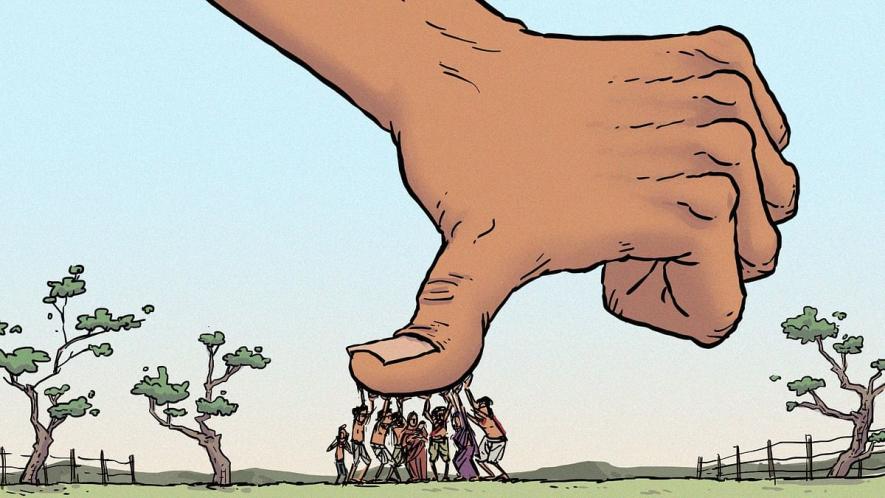
Reports indicate a significant increase in crimes against Dalits in Tamil Nadu. According to India’s National Crime Records Bureau, a crime is committed against a Dalit every 18 minutes, with 27 atrocities reported daily. .
⚠️ Post-Pahalgam Hate Crimes
After the April 22 attack in Pahalgam, Muslims and Kashmiris faced lynching, job loss, and healthcare denial. Posters read: “Dogs and Muslims not allowed.”

In the aftermath of the April 22 militant attack in Pahalgam, a chilling wave of hate crimes and discrimination has erupted across India, targeting Muslims and Kashmiris:
- Murder & Mob Violence: Members of the Kshatriya Gau Raksha Dal lynched a Muslim man and injured his cousin in Uttar Pradesh as “retaliation” for the attack.
- Widespread Assaults: From Chandigarh to Dehradun, Kashmiri students. especially women faced verbal abuse, physical attacks, and eviction threats.
- Workplace & Medical Discrimination: Muslim workers were fired, denied medical care (e.g., in Kolkata), and harassed for refusing to chant Hindu religious slogans.
- Hate Speech & Threats: Posters declaring “Dogs and Muslims not allowed” appeared in West Bengal; Hindu groups openly called for Gaza-style action in Kashmir.
- State Complicity: Security personnel failed to intervene during assaults, while politicians were booked or arrested for questioning the government narrative.
🧑💼 New Labour Code: 4-Day Workweek

India’s New Labour Code 2025 proposes a 4-day workweek, allowing employees to work 12-hour shifts over four days, totaling 48 hours per week. While aiming to provide longer weekends, this change has sparked debates about potential overwork and its impact on workers’ health.
🛵 Gig Workers Demand Rights
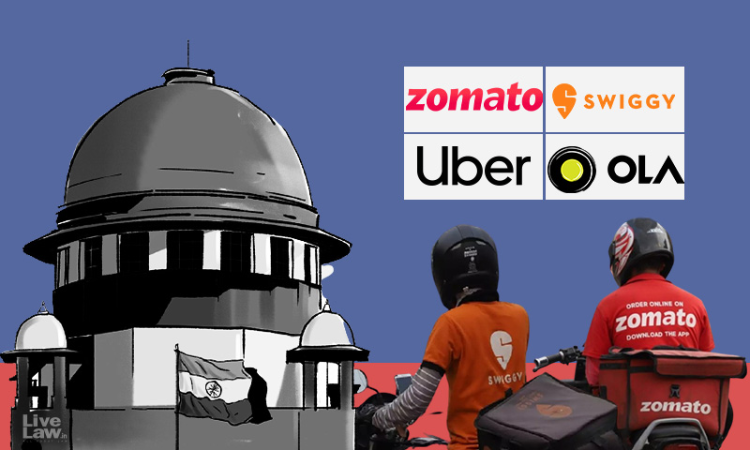
The Indian government is engaging with stakeholders to develop a comprehensive framework providing social security benefits to gig and platform workers. This move aims to address the lack of protections for workers in the rapidly growing gig economy.
🏢 Mass Layoffs Globally

In 2025, companies like UPS (20,000 jobs), Meta (21,000+), and Johns Hopkins University (largest layoffs in its history) have slashed jobs citing automation, restructuring, and budget cuts. Mass layoffs now reflect a shift toward cost-cutting and AI-led efficiency.
🌐 Trade Wars Threaten Jobs
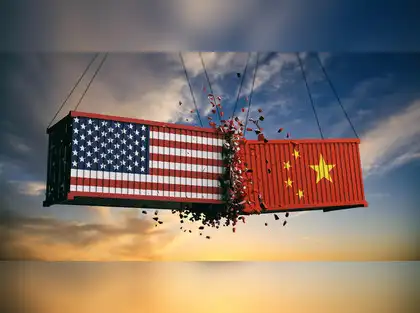
U.S.-China tariffs have triggered a downturn: China’s manufacturing index dropped to 49.0 and global growth forecasts dipped to 2.8%. Export bans and rising costs are putting millions of jobs at risk, especially in manufacturing-heavy economies.
📣 Final Word
From manholes in India to lithium mines in Africa, from torrent downloads to corporate layoffs, the stories may differ — but the theme is the same: labour is under siege.
This May Day, let’s remember:
✊🏽 Dignity of labour means equity, access, and liberation — not just work.

